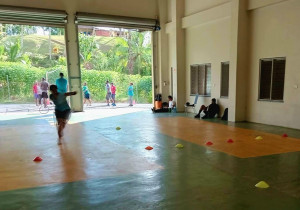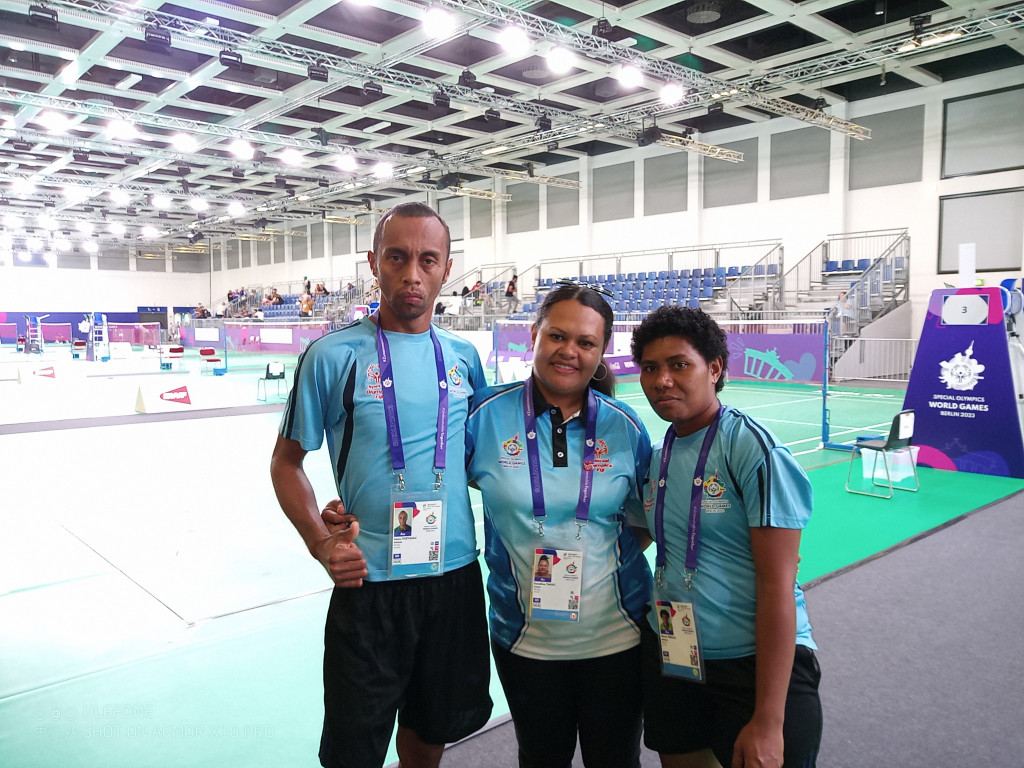Kasalina Tagici is nothing if not resourceful.
Faced with the problem of where her Special Olympics players could sharpen their skills on Fiji’s second island of Vanua Levu, the full-time teacher and volunteer coach came up with a novel idea.
“We don’t have a big indoor facility, so we were looking for somewhere to accommodate the two players,” Tagici says, tipping her gaze towards Maria Teresia and Samu Vuetasau, the proteges she brought to Berlin for the Special Olympics World Games.
The trio were standing on court deep inside Berlin’s Messe exhibition centre, a vast complex of aircraft hanger-sized halls on the western fringes of the German capital.
“Back home we were only training on grass, we don’t have courts like these,” Tagici says.
The Fijian team could be forgiven for feeling overawed. Hall 1.2 hosting the badminton competition has room for 11 courts and could easily accommodate another three, were it not for many of the 69 teams using the vacant space to warm up or wind down.
And with both tribunes filling up with spectators, there are surely more people inside this one hall than live in Tagici’s hometown of Savusavu, where her search for a training space was concentrated.
“We looked everywhere,” she says, recalling how her hopes were beginning to recede.
“And then we found the fire station. It had a garage with a hard floor where we could set up a court. Whenever we go, they move the fire truck outside so we can play.

The garage in the fire station.
“We just use cones to mark out a court and a piece of string for a net, and then we play badminton. Usually, the firemen even come in and help us with our exercises.”Tagici is grateful for the support, not just from the National Fire Authority on Vanua Levu, but also from BWF, which has provided resources and trained her as a tutor under the Shuttle Time programme.
“Badminton was not popular in Fiji so with the introduction of Shuttle Time, it helps a lot of children to be more aware of the sport, either by playing indoors or outside with AirBadminton,” she says.
“Even my two Special Olympians, I trained them using AirBadminton. But this is our first time playing on a proper court and at a real competition in facilities such as these. It’s an honour to be experiencing such a moment.”
And what happens for Tagici once Berlin 2023 and its gargantuan Messe have faded from view: can badminton brighten the Special Olympics light in a country where rugby has long dominated the sporting landscape?
“There will always be children interested in trying out sports other than rugby,” she says. “Most of our children with a disability are not involved in rugby, but AirBadminton is for everybody, and people with learning or physical disabilities are included in every way.
“Inclusion in sport is becoming more well known in Fiji, but it is still the beginning. We are taking it one step at a time and are sure we will do even more inclusive programmes in badminton.”

Tagici flanked by Vuetasau and Teresia in Berlin.































